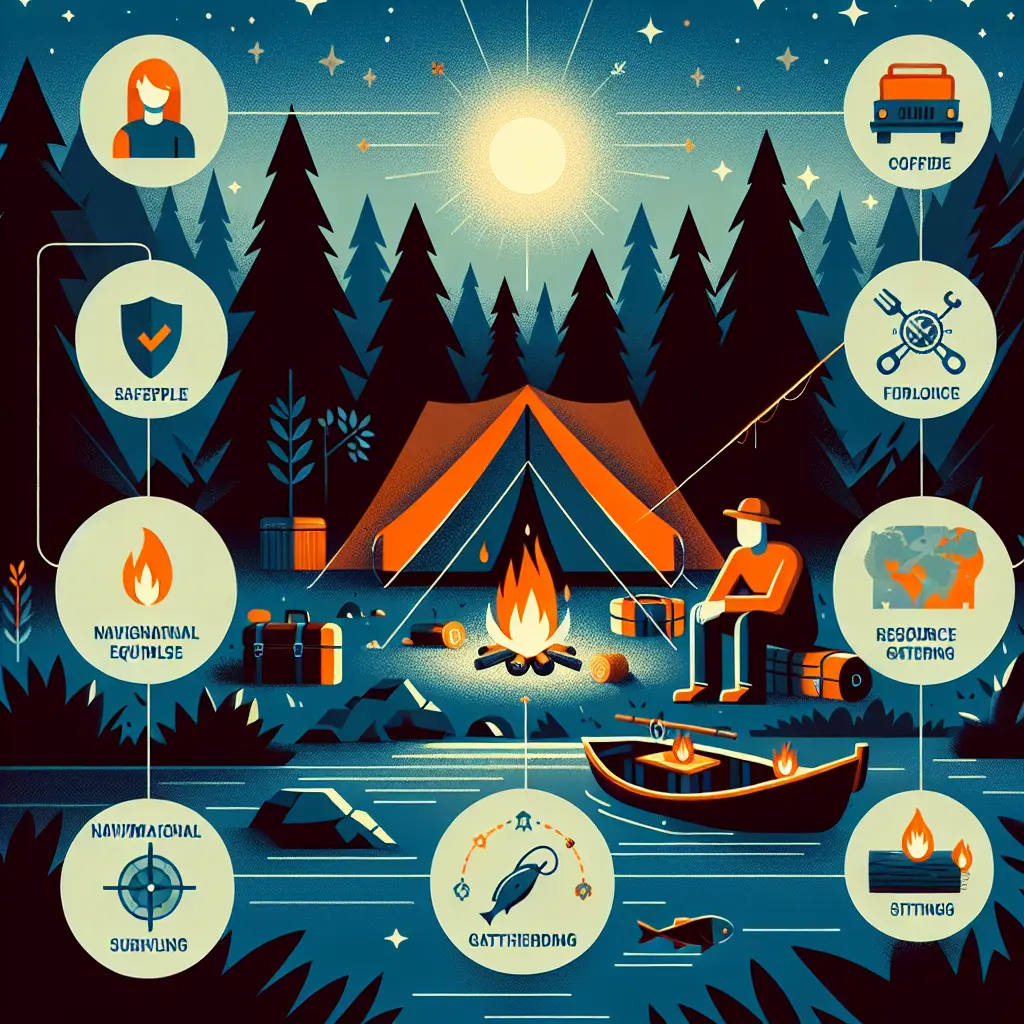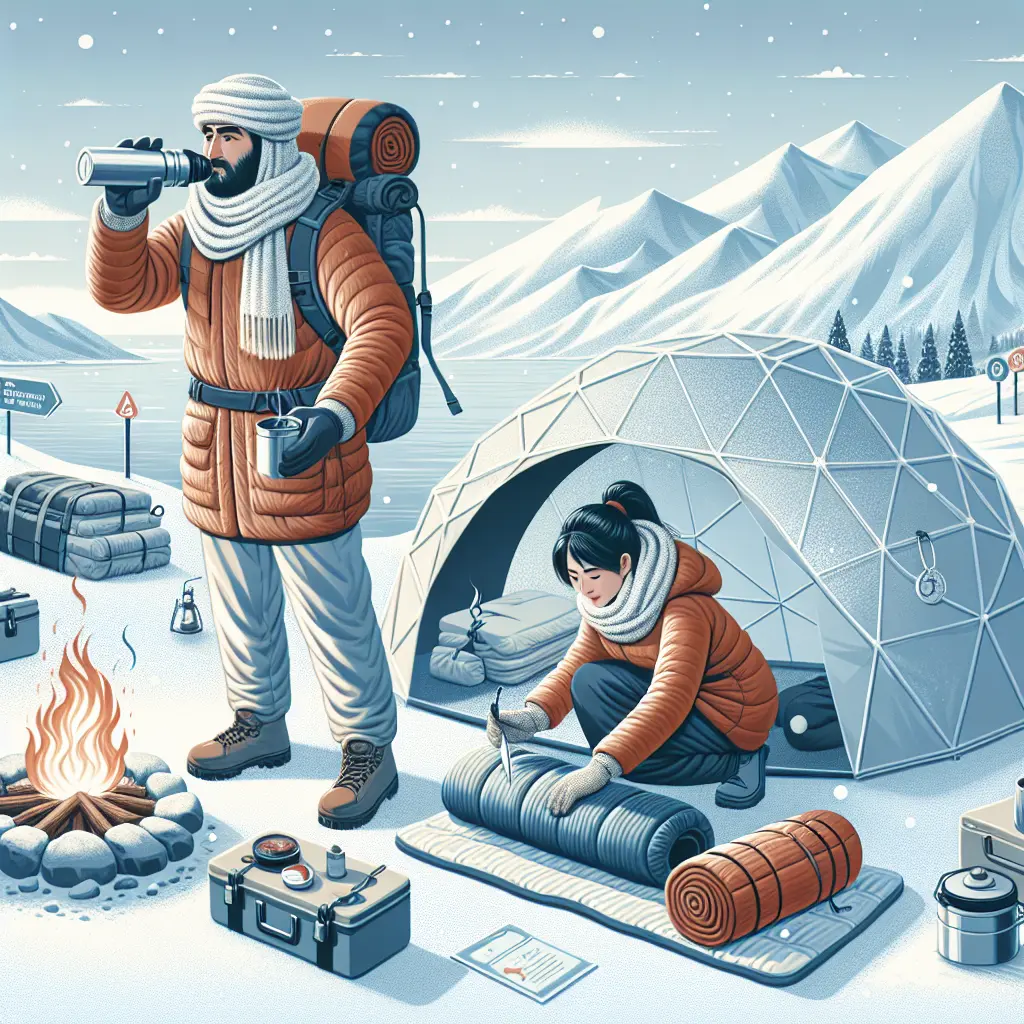Embarking on a solo camping adventure is not just about escaping into nature; it's a transformative journey that fosters self-reliance and builds confidence in the outdoors. Whether you're a seasoned adventurer or a novice exploring solo camping for beginners, mastering outdoor survival skills and understanding camping safety tips are crucial for a rewarding experience. Solo camping offers unique challenges, from adapting to weather changes while camping to ensuring safety when camping alone. These experiences push boundaries and allow campers to overcome fear, ultimately strengthening mental resilience.
When preparing for solo camping, it's essential to equip yourself with weather preparedness knowledge and a self-reliant camping gear setup tailored for different climates. Navigating wilderness survival camping can be daunting, but with the right outdoor survival guide and weather survival tips, you can tackle the unpredictability of Mother Nature confidently. Embracing the mental health benefits of solo camping also allows individuals to reconnect with themselves, fostering personal growth and a sense of accomplishment.
Solo camping challenges can arise in various forms, from learning to adapt to different weather conditions to dealing with the solitude of nature. However, each obstacle presents an opportunity for growth. Confidence-building outdoor activities during your trip can enhance your outdoor experience, providing a platform for building trust in your abilities.
For those ready to embark on this liberating journey, understanding the nuances of self-reliance camping is key. With the right preparation and mindset, solo camping not only enriches your outdoor experience but also empowers you to embrace the freedom of the wilderness. As we delve deeper into this exciting endeavor, let's explore essential tips and strategies to ensure a successful and fulfilling solo camping adventure.
Solo camping is an empowering pursuit that not only tests your outdoor survival skills but also fortifies your confidence in the wilderness. Whether you're diving into solo camping for beginners or seasoned in the art of self-reliance camping, the experience fosters personal growth and resilience. As you prepare for this transformative journey, let's delve into essential solo camping tips that will aid in building confidence and self-reliance.
Understanding Solo Camping and Self-Reliance
Solo camping is a unique endeavor that necessitates a high degree of self-reliance. This form of camping encourages individuals to trust their instincts, make decisions independently, and navigate challenges without external assistance. For beginners, this might seem daunting, but with the right preparation, it becomes a powerful tool for personal development.
Research and Planning: Before setting out, familiarize yourself with the area you plan to explore. Knowing the terrain, local wildlife, and potential hazards can significantly boost your confidence. Websites like AllTrails offer detailed trail maps and user reviews that can provide valuable insights.
Self-Reliant Camping Gear: Your gear is your lifeline. Invest in high-quality, reliable equipment tailored to the climate you'll be camping in. Essential items include a durable tent, weather-appropriate clothing, a multi-tool, and a reliable source of light like a headlamp. REI's Gear Guide provides an extensive checklist for campers.
Confidence-building outdoor activities are integral to solo camping. These activities not only enhance your skills but also boost your self-assurance.
Building Confidence in the Outdoors
Navigation Skills: Mastering the use of a map and compass is crucial. GPS devices are handy, but understanding traditional navigation methods ensures you're prepared if technology fails.
Fire Making: The ability to start a fire is a quintessential outdoor survival skill. Practice different techniques such as using flint and steel or a bow drill. Resources like Survival Life offer comprehensive guides on fire-making.
Weather conditions can change abruptly, making weather preparedness for campers vital. Here are some weather survival tips:
Layering Clothing: Adopt a layering system to adapt to fluctuating temperatures. This allows you to adjust your insulation based on activity level and weather conditions.
Shelter Setup: Learn how to set up your tent efficiently in various conditions. A well-pitched tent can withstand wind and rain, providing crucial protection.






Leave a Comment